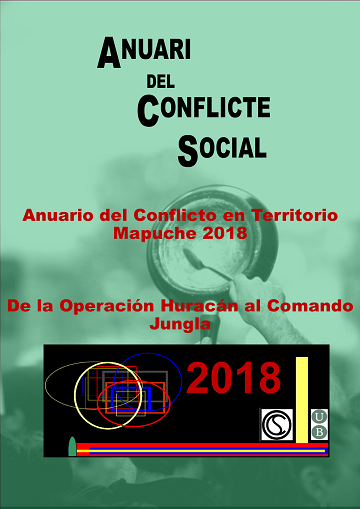MAPUCHE PARTICIPATION AND INSTITUTIONAL POLITICS IN 2018
DOI:
https://doi.org/10.1344/ACS2019.9.6Keywords:
Mapuche, Chile, political parties, policies, movements, indigenous peoples, municipalities, representation.Abstract
This article describes and analyzes the most relevant events that, in the broader context of the conflict between the Mapuche people and the Chilean state, took place in the country’s institutional arena in 2018. To do so, the authors focus on the junctures, processes and struggle for power and influence in several institutions. The year 2018 saw many examples of tensions, efforts at resolution and long-standing conflicts between the state and the Mapuche people. In this article, we analyze these issues from a diachronic perspective, trying to identify if the events that took place in 2018 are part of new dynamics or, on the contrary, they represent continuity in the way the Mapuche have historically participated in Chile’s institutional politics. Seeing and analyzing things this way will allow us to put into perspective the different ways in which conventional political participation occurs, which constitutes our focus in this article. The article visualizes that the events that we have witnessed in 2018 are the expression of unresolved, long-standing conflicts that need urgent attention to avoid tragedies like the ones analyzed in this journal’s issue.
Downloads
Published
How to Cite
Issue
Section
License
Copyright (c) 2020 Tokichen Tricot, Germán Bidegain

This work is licensed under a Creative Commons Attribution 4.0 International License.
AUTHORS RETAIN COPYRIGHT. CREATIVE COMMONS
The authors who publish in this journal agree to the following terms:
- The authors retain the copyright and grant the journal the right of first publication of the work, which will be disseminated following the Creative Commons Attribution license.
- Authors are free to establish additional independent contractual agreements for the non-exclusive distribution of the version of the work published in the journal (such as publication in an institutional or thematic repository, their personal website or a book), provided have your initial publication in this journal recognized.
- Texts will be published under a Creative Commons Attribution License that allows others to share the work, provided they include an acknowledgement of the work’s authorship, its initial publication in this journal and the terms of the license.
- Self-archiving of pre-print and post-print versions is allowed.
Privacy statement
The email addresses and names entered in this publication will be used exclusively for the purposes declared and will not be used for any other urposes or made available to third parties.







